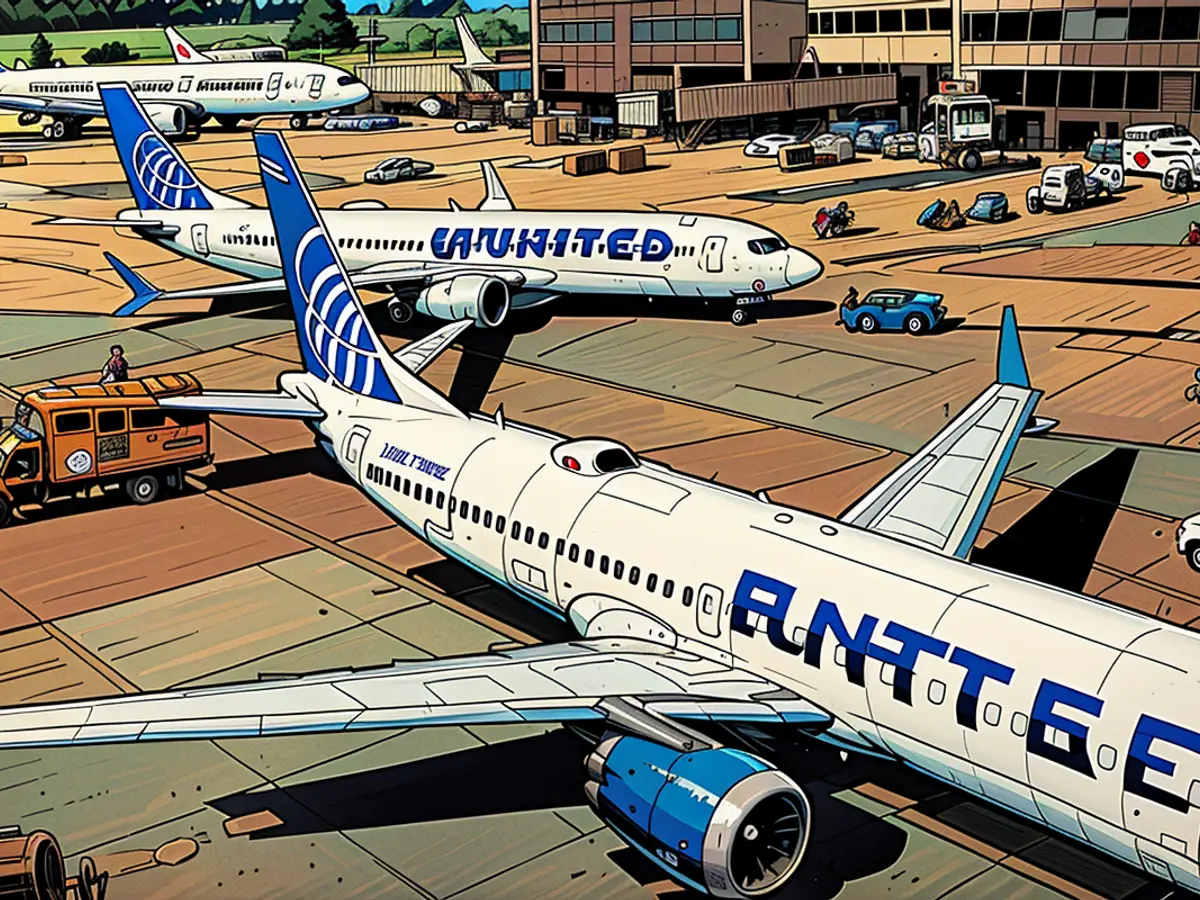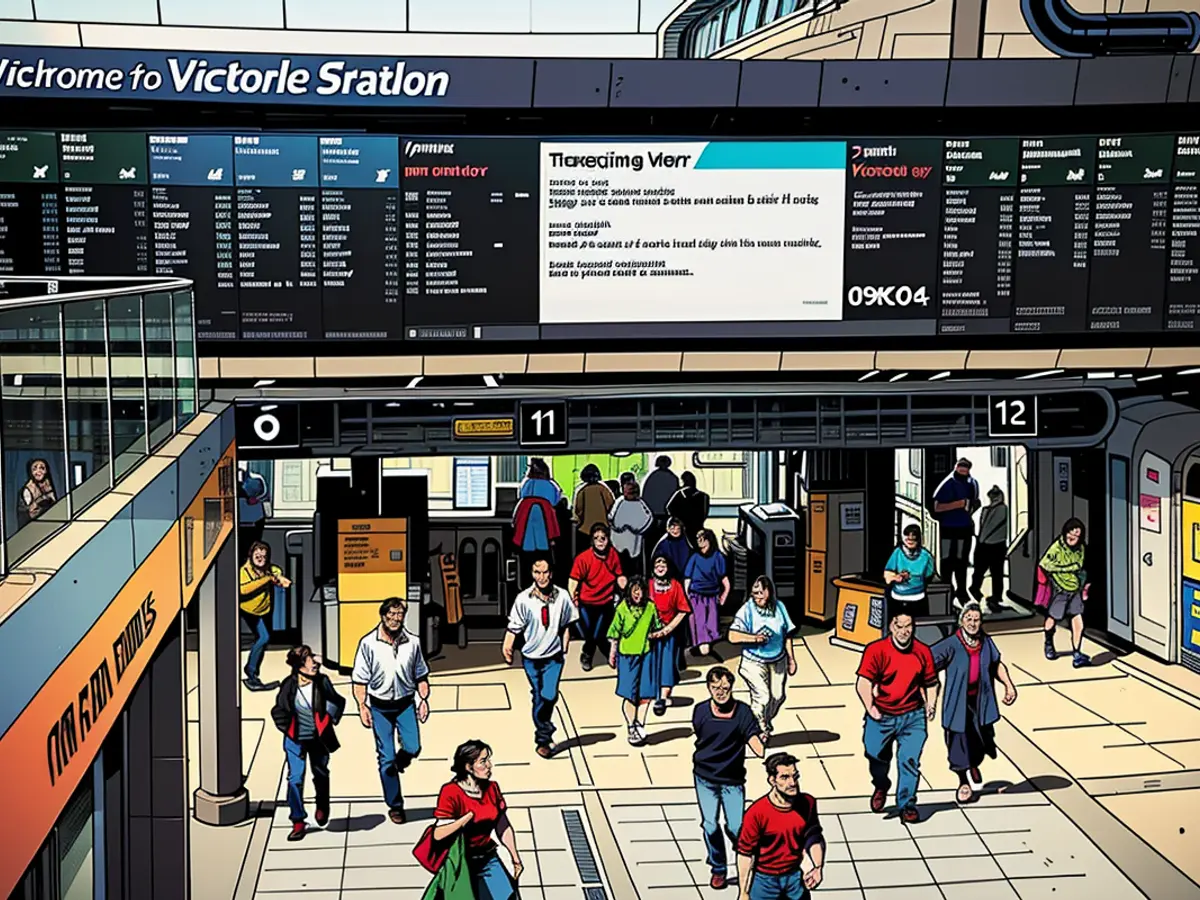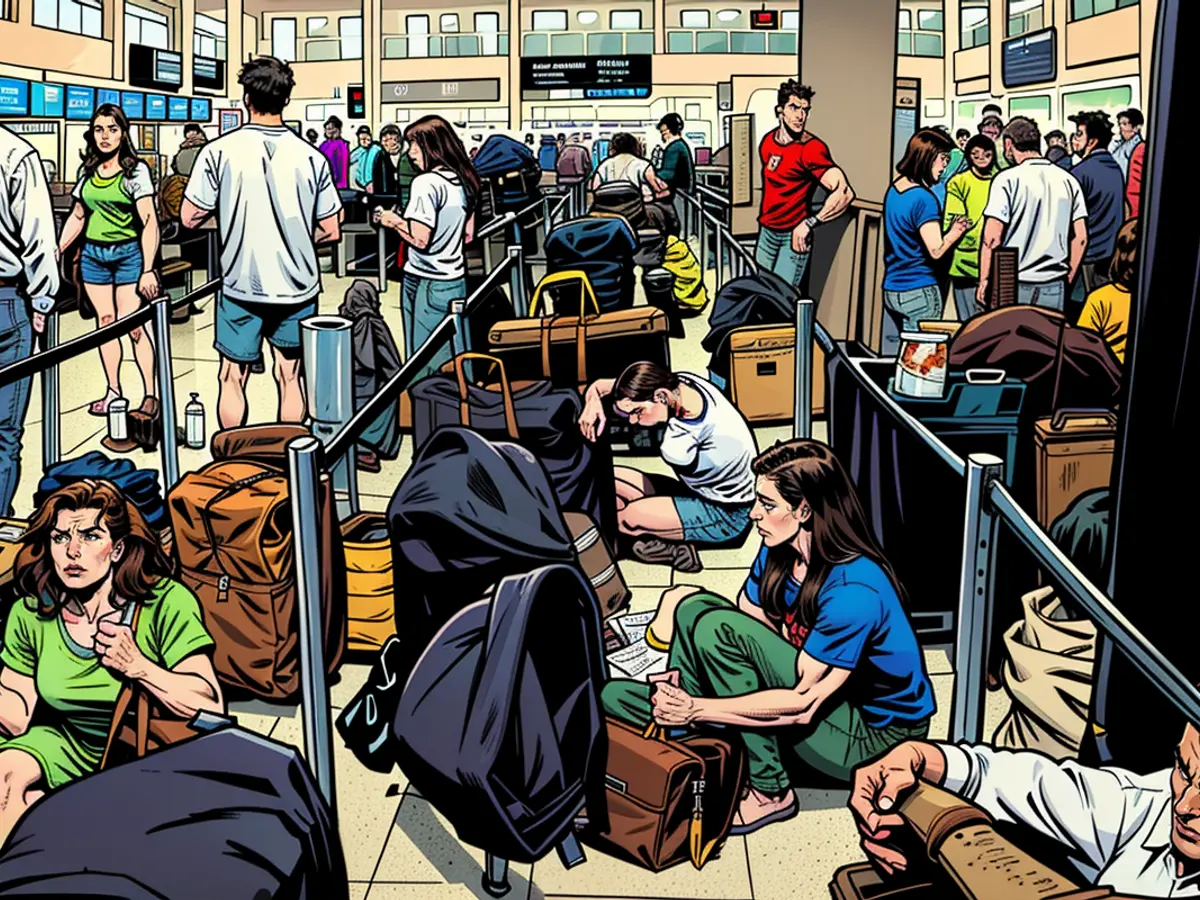What’s going on?
Global tech outage: What to know if you’re traveling this weekend
Widespread IT problems are currently impacting global travel. It’s believed the issue stems, at least in part, from a software update issued by software company CrowdStrike on Microsoft Windows operating systems.
The CEO of CrowdStrike said in a statement obtained by CNN that the IT issue causing a global outage has been identified and a fix has been deployed.
Meanwhile, Microsoft said the “underlying cause” that led to the global outage “has been fixed,” but added that residual impact is still affecting some services.
Airports, airlines and travelers across the globe continue to navigate the fall-out.
Which airlines are impacted?

US-based carriers American Airlines, United Airlines, Delta Air Lines, Allegiant Airlines, SunCountry and Frontier Airlines all reported issues on Friday. American Airlines has since said it has “safely reestablished” operations, while United Airlines is resuming “some flights.”
Delta Air Lines operations resumed some flight departures but additional delays and cancellations are expected Friday.
The Federal Aviation Administration (FAA) said in a statement that it’s “closely monitoring a technical issue impacting IT systems at U.S. airlines,” adding that “several airlines have requested FAA assistance with ground stops until the issue is resolved.”
Ryanair, Air France and Turkish Airlines also reported issues, while KLM Royal Dutch Airlines said the outages are “making flight handling impossible.” AirAsia said its “core reservation and check-in system” have been impacted by the tech issues.
Cirium, an aviation analytics company, shared preliminary data with CNN on Friday about the extent of the disruption. Across the globe, there are around 110,000 scheduled commercial flights Friday, according to Cirium. As of 6 a.m. ET, Cirium said there were 1,390 canceled flights globally and that figure was growing.
This is a fast-moving situation, so if you’re planning on flying this weekend, it’s best to keep tabs on your chosen airline’s social media channels, apps and website for up-to-date information. Check your flight status before you head to the airport, if you can.
How long will it take for things to get back to normal?
Travel will likely take a while to get back on track, even once the outage is sorted. The stoppage of flights means that thousands of aircraft have been grounded around the world and could be stuck in the wrong airports.
Crews have limits on their working hours, so staffing challenges cascade along with flight delays.
Getting schedules back on track is a complicated process that can take several days to iron out. The best course of action is to monitor your airline for announcements and to know your rights as a consumer.
Which airports are impacted?
Many airports across the globe are logging tech-related issues. Dubai Airport reported issues on Friday morning, but the airport said in a post on X that normal operations have resumed.
Passenger William Sikora III told CNN Friday morning that the situation at Philadelphia International Airport is “absolutely insane right now” in the wake of the disruption.
In Europe, London’s Gatwick Airport said it is “affected by the global Microsoft issues” and that passengers may experience delays checking in and going through security. London’s Heathrow Airport said it was working with “airport colleagues to minimize the impact” and advised passengers to check with their airlines for the latest flight information. Berlin Airport said it is experiencing delays to check-in, while Amsterdam’s Schiphol Airport stated the impact on its airport is “being mapped.”
Scotland’s Edinburgh Airport said the outages mean “wait times are longer than usual at the airport.” Spain’s airport authority, AENA, which supervises airports in Madrid, Barcelona and others across the country, said the tech issues “could cause delays” and that its staff are working to solve the problems.
This is not an exhaustive list, so it’s best to check the status of any airports you’ll be transiting through this weekend before you travel.
What do I do if my flight is canceled?
First off, if you can, check the status of your flight before you leave for the airport. It’s better to find out your flight is canceled from the comfort of home or a hotel room and make new arrangements from there, if at all possible.
If you’re already at the airport, head to the airline help desk. While you’re standing in line, it’s worth phoning the airline help number and trying to contact the company via social media or email. If you are a member of an airline executive club and have access to a special phone number, now is the time to use it.
If it looks like the airline won’t be able to put you on a flight until the following day, ask for a hotel room or hotel voucher. There are fewer consumer protections for situations outside of airlines’ control, but it’s worth requesting. And if your airline seems to be impacted, but another airline is still operable – ask about flying with other carriers.
“When flights are canceled, many airlines have the option of putting you on another carrier’s flight because they have interline agreements,” Lousson Smith, product operations specialist at Going.com, told CNN Travel in our guide to flight cancellations, which you can read here.
“This means, for example, if Delta is having service interruptions but American is running a flight to your destination, you may be able to get on that flight.”
If you can plausibly take a train rather than fly – e.g. if you’re in the UK heading to mainland Europe – it could be worth checking last-minute ticket availability.
What are my rights as an air traveler?
That depends on where you’re flying to and from – in the US, for example, passengers have the right to a refund for canceled flights, but additional compensation or accommodation for delays or cancellations outside of carriers’ control is up to each airline.
On flights to and from EU countries, the laws are different. If your airport of origin is within the EU or if you’re arriving to the EU on an EU airline, you’re entitled to a refund for delays longer than five hours and additional compensation for some shorter delays.
Wherever you’re traveling, it’s worth familiarizing yourself with the airline terms and conditions associated with your booking.
And if you have travel insurance, look up your rights there too.
Can I cancel my flight if I no longer want to travel?
That all depends on the type of ticket you have, the airline you’re flying with and whether you have travel insurance (which is always a good idea). Insurance covers missed departures and connections – if your flight is delayed, your company may be able to help change your travel plans, though it’s unlikely that they’ll refund you if your flight is not affected but you no longer want to travel.
Check your airline to see if it’s offering passengers the chance to cancel or change dates. As the situation spirals and airlines reroute passengers on canceled flights, the flexibility may increase. At the time of writing, American Airlines is offering free changes for those due to fly on July 19 through eight major hubs (there are caveats as to rebooking dates).
British Airways said it has increased flexibility for customers flying shorthaul routes over the weekend.
Delta has issued a travel waiver for impacted customers
Are trains and other public transport systems affected?

Some train systems are reporting issues related to the tech outage. In the UK, National Rail reported “widespread IT issues across the entire network” on Friday. National Rail said UK train operators are unable to access driver diagrams at certain locations, so there’s the potential for short-notice train cancellations.
In Italy, the transport ministry said Trenitalia and Italo train networks were suspended after systems went offline. Passengers called emergency services and demanded to be let off the trains because of extreme heat, after enduring delays up to 140 minutes. Some trains on rural Italian rail lines have been stopped due to extreme heat.
In the US, trains and buses in Washington, D.C. have been impacted by Friday’s outages, according to the US capital’s transit authority. A number of Washington Metropolitan Area Transit Authority (WMATA) systems are “currently down,” with a post on X stating: “Our IT teams are working to address this issue.”
In New York, Metropolitan Transportation Authority (MTA) customer information systems went temporarily offline Friday morning, according to officials. However the MTA said “train and bus service is unaffected.”
Again, this isn’t an exhaustive list. If you’re set to travel soon, wherever you are in the world, it’s worth double checking your individual journey status before you travel.
The global travel sector is currently facing challenges due to widespread IT problems, which are believed to be linked to a software update issued by CrowdStrike. Many airlines, including American Airlines, United Airlines, Delta Air Lines, and Ryanair, have reported issues as a result of this outage, affecting their operations and causing delays and cancellations.
Read also:
- Fear of escalation in the Middle East: US Secretary of State Blinken travels to the region again
- Government circles: US Secretary of State Blinken to travel to Middle East again
- Bridging days 2024: How you can double your vacation this year
- Germany has wanderlust: how tour operators and airlines are looking ahead to the next travel year








